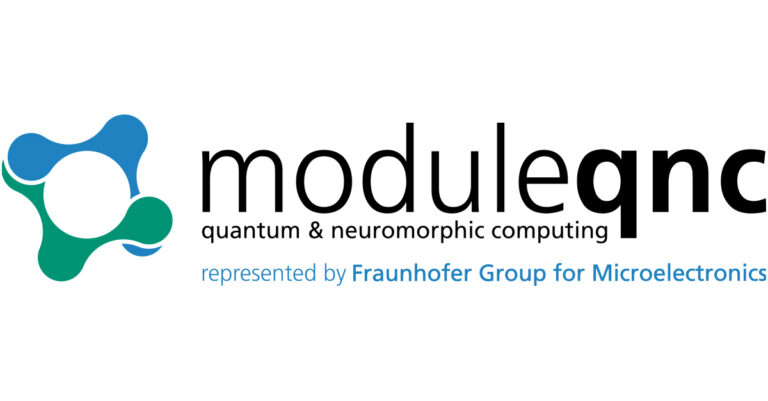
With the new FMD-QNC module, the Research Fab Microelectronics Germany (FMD) expands and strengthens its capabilities in supporting the development of quantum and neuromorphic computing hardware across Germany and Europe. This long-term initiative brings together 19 renowned institutions, including Fraunhofer and Leibniz Institutes, Research Center Jülich, and AMO GmbH, forming a powerful alliance to drive innovation.
FMD-QNC fosters the development of a wide range of quantum and neuromorphic computing hardware by providing tailor-made technologies and processes in the fields of nanotechnology, microelectronics, optics, and photonics. In addition to its advanced manufacturing and pilot production capabilities, FMD-QNC offers a comprehensive suite of services, including design, simulation, system integration, testing, and evaluation. These services are specifically tailored to meet the stringent requirements and standards necessary for scaling quantum hardware and ensuring a seamless transition to industry.
The Research Fab’s networked cleanroom infrastructure and advanced equipment provide an extensive range of technological offerings, ensuring flexibility, quality, and depth. Through a central business office, FMD-QNC offers consulting services and facilitates coordination across all partners, delivering optimized solutions for both academic and industrial users.
Funded by the German Federal Ministry of Education and Research (BMBF), the FMD-QNC venture is a pivotal step in developing next-generation computing technologies in Germany and Europe.
FMD-QNC supports the full spectrum of quantum hardware platforms, including superconducting qubits, semiconductor spin qubits, color centers in diamond, photonic qubits, ion traps, and neutral atoms. It also leverages advancements in other emerging computing paradigms, such as analog and neuromorphic computing.
Our Technologies and Processes
This non-exhaustive list showcases the breadth of FMD-QNC's offerings to support quantum development:
Superconductors: Characterization and stable, high-yield fabrication of superconducting qubit chips and Josephson junctions.
Cryogenic Integration: Superconducting Through Silicon Vias (TSVs), superconducting micro-bumps, and flexible high-density cryogenic wiring for scalable quantum circuits.
Quantum Materials: Growth of quantum-grade diamond with delta doping and isotopically purified semiconductor heterostructures for quantum wells and quantum dots.
Micro- and Nanofabrication: Precision nanolithography and etching for gate structures and floating 3D nanostructures, as well as microstructuring of glass via Selective Laser Induced Etching (SLE).
Heterointegration: Flip-chip bonding, transfer bonding with self-alignment, and interposer technologies for integrating electronics, photonics, and superconductors, optimized for cryogenic temperatures or ultra-high vacuum environments.
Cryogenic CMOS Electronics: Cryogenic characterization and circuit design to enable scalable integration of low-power control electronics.
MEMS Processes and Components: Development of phase shifters for linear optical computing, micro-mirror arrays as spatial light modulators, mirror devices for precise laser addressing, and 3D metallization for ion trap fabrication.
Integrated Photonics: Fully integrated chips featuring photonic waveguides and electro-optical circuits on advanced platforms such as LNOI, SOI, SiN, InP, AlN, AlGaN, AlScN, Al₂O₃, and Ag in glass.
Customized Optoelectronics: Design and fabrication of laser diodes, narrow-linewidth laser modules, modulators, and Single-Photon Avalanche Diodes (SPADs) with high quantum efficiency.
Further information on our portfolio can be found at: module-qnc.de/en/technologieangebot
Senior Expert for Quantum Technologies and Cooperations
Dr. Tim Rom
Research Fab Microelectronics Germany (FMD)
Anna-Louisa-Karsch-Str. 2
10178 Berlin Germany
module-qnc.de